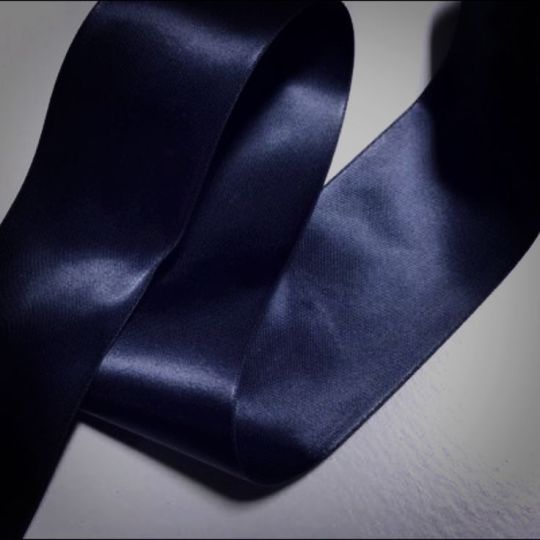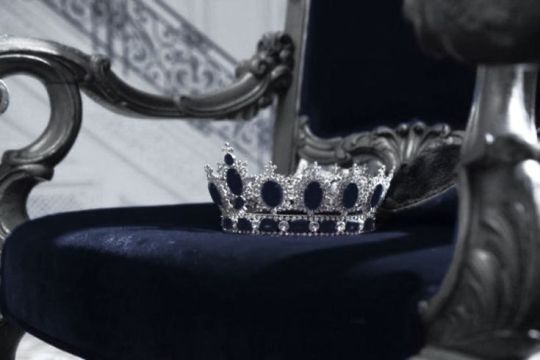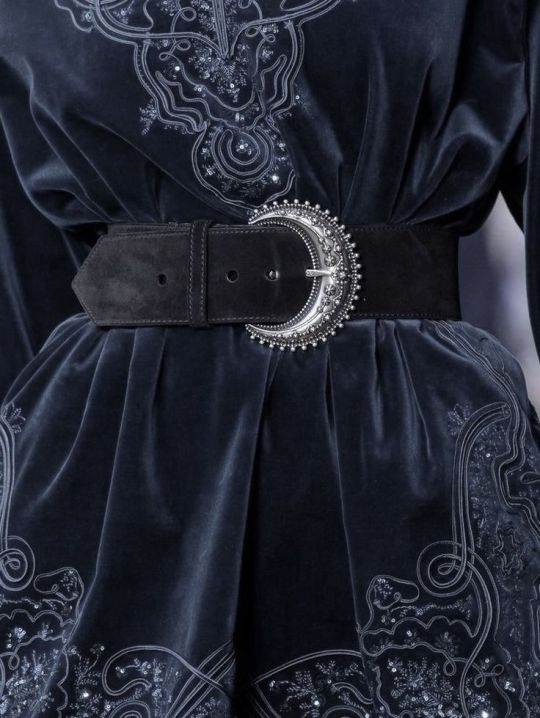#Fjerda
Explore tagged Tumblr posts
Text
unpopular opinion but i really think inej would change the name of her ship. she told kaz herself that she didn't want to be the wraith anymore. she and her ship would be the Jackal, the suli's holy animal
#if anyone has other interpretations or supports the ship being called the wraith#reblog / tell me#inej gafha#six of crows inej#six of crows duology#six of crows#six of crows kaz#six of crows headcanons#kaz x inej#inej ghafa#kaz brekker#crooked kingdom#ketterdam#ravka#fjerda#shu han#grishaverse#the grisha trilogy#grisha netflix#the grisha series#the grishaverse#shadow and bone#shadow and bone spoilers#soc au#soc#soc fandom#soc fic#soc inej#kaz rietveld#the wraith
124 notes
·
View notes
Text
matthias helvar was not a nazi, he was a boy built like a weapon and left to die trying to be human
i am so unbelievably tired of people calling matthias a nazi or white supremacist (????) like they skimmed six of crows with one eye and a twitter filter and decided to cosplay moral literacy.
you want to understand drüskelle? look at vikings. look at central asian nomads. look at mongol military doctrine. not fucking gestapo. fjerdan language is literally scandinavian rooted, the culture is a cold, norse coded polytheistic pantheon, a divine warrior class, and sacred wolves, tribal theocracy. they literally do not give a single fuck about being superior and think that others are subhuman for being different. all they talk about is grisha are dangerous but not because they’re lesser but because they’re threat.
matthias was not raised on supremacy. he was raised on vengeance. his family got murdered, he was conscripted as a child. not brainwashed like it’s a class he could skip; groomed, militarized, stripped of softness, molded into a holy weapon by a state that demanded obedience and called it righteousness.
you think this is a redemption arc? it’s not. it’s a ghost story.
he doesn't know how to be a human. nina tells him -literally textually, not subtextually- he doesn’t know the difference between a good man and a good soldier. he gives her the same oath he gave fjerda. that’s not romance. that’s structural damage. this boy has no idea how to want something for himself without filtering it through violence, duty, or sacrifice.
he doesn’t even have a personality. not really. not until right before he dies
when he, jesper, and kuwei escape from the dime lions, and for the first time in his entire life, he thinks "i’ll find nina. we’ll change the world."
that’s the first moment he thinks like a person. not a soldier. not a legacy. a person.
and what does he do?
he tries to help a boy.
and he dies.
not because he “paid the price for his past.”
he dies because he was a half-built soul making a full-hearted decision with no idea how to survive it.
he still thinks like a twelve year old boy who accepted losing blood for trassel
“i won’t hurt you even if you hurt me.” // “you don’t want to hurt me. i was like you once.”
he still acts like “doing good” means dying for it. because that’s the only model he’s ever had.
this isn’t justice. it’s unfinished. it’s unfair. it’s textually written to be a scream cut short.
and you reduce that to “nazi boy dies lol”?
be fucking for real
matthias didn’t get a redemption arc, he was learning how to be a human and we were going to read his redemption if he didn't fucking die.
matthias helvar was not evil.
he was barely even alive before he met nina/crows
and he dies the moment he starts to imagine he could be more.
ps. also, no, he didn’t get shot by his "past self." matthias never would’ve shot a man who was unarmed and willing to cooperate. joran was 14 when he killed matthias. matthias was 12 when he risked losing his arm to save trassel. he didn’t even scream when his bone was about to break.
he was the same 12 year old boy who thought he could gain the trust of the aggressive opponent by being kind. that’s why he died. because he never got to grow up fully.
#matthias helvar#six of crows#nina zenik#kaz brekker#inej ghafa#jesper fahey#wylan van eck#crooked kingdom#six of crows spin off#i'm at the edge of losing it#if i see this idiotic discourse one more fucking time#helnik#fjerda#drüskelle
81 notes
·
View notes
Text
One of my favourite little details in Six of Crows is that throughout the book we have this growing tension and build-up surrounding just how the Drüskelle execute Grisha and we never get a straight answer, not even when Nina directly asks Matthias if not a pyre then what and gives examples (including firing squad and gallows) and Matthias deflects the answer. At the time we think little of it because of the heat of the moment and the high tensions surrounding the argument, plus we’re still fresh from the pyre scene, but ultimately Matthias never actually answers this question because he does not know the answer.
And he does not know, as we learn in chapter 35 straight from Jarl Brum’s own mouth, because they don’t, at least in the typical sense of the word, actually execute the Grisha; for the past fifteen years they’ve been torturing and experimenting on the Grisha prisoners found guilty during the trials.
Anyway I’m tired so I’m not gonna let this post get too much longer but the point is that I think the fact Matthias doesn’t even know the answer to this question is one of the many things that keep him questioning the manipulation he was put through early on in the book and I think that to a certain degree the solidification of every tiny doubt he had in chapter 35 told him not that he was going to turn on Brum, because he already knew he would do that for Nina, but that he was making the right choice for himself by doing it too
#idk i’m tired#this may not get my point across properly#but anyway#I love Matthias helvar#Matthias helvar#six of crows#grishaverse#crooked kingdom#leigh bardugo#kaz brekker#inej ghafa#wylan van eck#jesper fahey#nina zenik#helnik#jarl Brum#drüskelle#Fjerda#save the grishaverse#save six of crows
207 notes
·
View notes
Text

they baptism the fjerdans
141 notes
·
View notes
Text
Fates of antagonists in Grishaverse:
Jan Van Eck: Imprisoned (possibly put in an asylum).
Pekka Rollins: Lives a rich lifestyle with his son somewhere.
Tante Heleen: Her brothel went out of business. Lives a rich lifestyle, possibly started a new business somewhere else.
Previous King of Ravka who bankrupted the country, did nothing but rape servant girls: Sent off to live a rich lifestyle while he still can (shortened life because of his sickness).
Previous Queen of Ravka who did nothing but spend money and only protected her favourite servants from the King. But later removed her protection from Genya and let the King rape her: Gets sent off to live a lavish lifestyle in sunny Southern Colonies.
Jarl Brum, a genocidal maniac, who revolutionized Grisha hunting, made new weapons, new strategies, new training systems just to hunt down Grisha in every corner of the world to kindap them, dehumanize them in countless ways, experiment on them and later kill them. The man who either killed Grisha after a sham trial or drugged them until they died, who forced Grisha women to get pregnant over and over while drugging them, the man who bombed Ravka's capital, who draws satisfaction from their suffering because he thinks Grisha are vermin and insult God by existing: Gets spared multiple times and later loses his rank. Because apparently, he's "only a product of the system and Fjerda made him that way". As if he wasn't the main force enforcing that system, as if he didn't brainwash children and made them make killing as many Grisha as possible their life goal.
The Darkling who fought for basic human rights for his people for centuries, made a school and a law to keep Grisha children from getting sold off and slaughtered and to give them education, placed older Grisha under the protection of nobles since Grisha were still formally King's property, didn't send unprepared children to the front lines like the First Army did, dealt with threats from Fjerda and Shu Han, kept Ravka functional even with the Fold separating the country: Gets killed by a bunch of schoolchildren and deserters who haven't even seen real war, his centuries of work gets erased and his name is more demonized than ever. In his absence, the Second Army is in shambles, the economy collapses, Grisha get kidnapped off the streets and get experimented on and dehumanized, Fjerda bombs the capital, the protagonists can't figure out any measures to ensure Grisha will be safe in their own country. Later he gets brought back to life only to be forced to clean up the protagonists' mess, makes Zoya a saint, gets made fun of because the narrative (the author) magically solves centuries of prejudice and genocide for Zoya to be accepted but shits on his attempts, gets eternal suffering while being fused to a tree as a thank you.
#shadow and bone#the darkling#grishaverse#aleksander morozova#grishaverse meta#grishanalyticritical#the grisha trilogy#the grisha series#grisha trilogy#pekka rollins#jarl brum#fjerda#ravka#make it make sense#antagonist
133 notes
·
View notes
Text
Can't believe that fjerda canonically has mermaids living in its shores and noone seems to care
#I love mermaids#six of crows#the six of crows#soc ck#soc#Fjerda#shadow and bone#s&b#s&b netflix#ICE MERMAIDS GUYS
67 notes
·
View notes
Text
kaz having ONE chapter in part 5 is crazy.

#i was missing bro and realised i hadn’t heard from him for 10 chapters#kaz brekker#six of crows#inej ghafa#six of crows duology#grishaverse#leigh bardugo#shadow and bone s2#books#kanej#six of crows fanart#matthias helvar#jesper fahey#nina zenik#wylan van eck#fjerda
58 notes
·
View notes
Text
“Water everywhere,” said Wylan. “Do the fountains symbolize Djel?” “The wellspring,” mused Kaz, “where all sins are washed clean.” “Or where they drown you and make you confess,” Wylan said. Jesper snorted. “Wylan, your thoughts have taken a very dark turn. I fear the Dregs may be a bad influence.”
Six of Crows- Chapter 29 (Leigh Bardugo)
That's a perfectly good question.
Do Fjerdans drown people to wash them off their sins?
Not Grisha, obviously. Unnatural abominations don't deserve to touch Djel's sacred fluid, but ordinary "criminals"?
#Grishaverse#SoC Chapter 29#Fjerda#Djel#Wylan van Eck#Kaz Brekker#Jesper Fahey#Matthias Helvar#The Crows#POV: Matthias#grishanalyticritical#V#Six of Crows#Six of Crows duology#books#quotes#Leigh Bardugo
76 notes
·
View notes
Text
If Wylan had worked with David and Nikolai on weapons while Ravka was at war with Fjerda, Fjerda would’ve been FLATTENED
#grishaverse#six of crows#books#crooked kingdom#fantasy#kaz brekker#leigh bardugo#shadow and bone#kazzle dazzle#ya books#wylan hendriks#wylan van sunshine#soc wylan#nikolai lantsov#ravka#fjerda#david kostyk#rule of wolves
75 notes
·
View notes
Text
Help I'm writing about Matthias's perspective on the Suli for a part in my latest fic chapter and I cannot find any concrete examples of how the Fjerdans treat the Suli outside of knowing that the Suli used to travel up to what is now Fjerda and some Fjerdans have Suli ancestry. Does anyone who read the books more recently than me have refrences? (I'll take page numbers, quotes, general ideas, really anything)
#six of crows#soc ck#grishaverse#crooked kingdom#six of crows fandom#six of crows fanfic#suli culture#the suli people grishaverse#fjerda#fjerdan culture grishaverse
26 notes
·
View notes
Text

Shadow and bone Aesthetic
#alina starkov#the sun summoner#sankta alina#ravka#cartography#grisha#volcra#shadow fold#sun summoner#the darkling#general kirigan#alexander morozova#aleksander kirigan#grishaverse#leigh bardugo#books#tv series#netflix#netflix shadow and bone#shadow and bone#aesthetic#baghra morozova#ben barnes#jessie mei li#shadow and bone trilogy#shadow and bone edit#fjerda#six of crows#six of crows book#kaz brekker
111 notes
·
View notes
Text
“The water hears and understands. The ice does not forgive.”
#six of crows duology#six of crows#soc nina#six of crows nina#nina six of crows#nina zenik#matthias helvar#six of crows matthias#fjerda#ravka#bookblr#booklr#book quote#book quotes#books#quotes#books and reading#quote#light academia#dark academia#leigh bardugo#grishaverse#grisha netflix#grisha trilogy
75 notes
·
View notes
Text
Nina Zenik went from being captured by Fjerdans because they hate people of her kind, to becoming the princess and the future queen of the same people that wanted her dead.
Idk guys, it's a clear exemple of upward mobility to me.
#Not mentioning the fact that they want to kill grisha and end up being ruled by to of them#Plus that they treat women like shit and end being ruled by two people that know what it feels like to be disregarded for your gender#Even though Hanne is not a women he knows what women are going through#shadow and bone#six of crows#nina zenik#shadow and bone season 2#hanne brum#hannina#rule of wolves#save shadow and bone#we never stop fighting#six of crows spin off#fjerda
152 notes
·
View notes
Text
Can’t sleep I’m thinking about the similarities between the upper class Kerch and the Fjerdans they consider “backwards” again
#also can’t sleep thanks to the classic ‘definitely anxious but don’t really know what about it’s just definitely happening’#which is as fun as it always is#grishaverse#six of crows#crooked kingdom#leigh bardugo#ketterdam#fjerda#kerch
34 notes
·
View notes
Text
— Absentee Empires: The Absence of Ottoman Influence in the Grishaverse and Its Potential Depth and Complexity
@aleksanderscult @siriuslyobsessedwithfiction @stromuprisahat @black-rose-writings Please share your thoughts on this—I’d love to hear your opinions!
One aspect of the Grishaverse that truly frustrates me is the absence of a nation inspired by the Ottoman Empire and the Arab world.
We have six well-defined nations—Ravka influenced by Imperial Russia, Fjerda drawing from Scandinavia, Shu Han reflecting elements of China and Mongolia, Kerch resembling the Netherlands, Novyi Zem based on the Americas, and the Wandering Isle inspired by Celtic cultures. But somehow, there’s no representation of the Ottoman Empire? It feels like a significant oversight, especially considering the empire's substantial power during the 16th century and its enduring influence into the 18th and 19th centuries, even amidst its decline.
While the Grishaverse hints at other “colonies” beyond the main nations, that doesn’t quite make up for the lack of an Ottoman-inspired culture. Just think about the richness it could have added! An Ottoman-inspired nation could have been filled with intricate politics, vibrant culture, and a fascinating history of diplomacy—especially with Ravka as a neighbor. The Ottomans had a complex and often contentious relationship with Imperial Russia, which included both trade and warfare. Imagining Ravka’s brooding intensity interacting with a nation influenced by Ottoman culture could have created such a thrilling dynamic, rich in both conflict and collaboration.
At first, I thought maybe some elements of Ottoman culture were reflected in Shu Han. But it’s pretty clear that Shu Han is primarily inspired by Mongolian and Chinese influences, making that connection a bit of a stretch. This feels like a missed opportunity, considering the Ottoman Empire was vast and influential, controlling significant parts of Southeast Europe, Western Asia, and North Africa. At its height, it was one of the world’s most powerful empires, playing a crucial role in European and Middle Eastern politics.
The potential for conflict between Ravka and an Ottoman-inspired nation would have been especially compelling. The 18th and 19th centuries saw numerous wars between the Ottoman Empire and Russia, primarily over territory in Eastern Europe and the Black Sea. These Russo-Turkish Wars significantly shaped the geopolitical landscape of the region. Instead of a straightforward narrative, we could have seen intricate power dynamics where alliances constantly shifted, leading to moments of both tension and unexpected cooperation. Imagine the political intrigue and skirmishes we could’ve witnessed…Instead of a simple “Good vs. Evil” narrative, we could have had layers of complexity, like “Who’s backstabbing whom today?” or “Are we trading grain or are we going to war?!”
But despite their military conflicts, the Ottoman Empire and Imperial Russia maintained a complex relationship that involved significant trade. As neighbors with intertwined economies, they exchanged goods like grain and textiles while competing for influence. A similar relationship in the Grishaverse could have added depth, showcasing how economic interdependence can exist alongside rivalry.
Additionally, the relationship between the Ottoman Empire and Fjerda could have been more diplomatic and friendly, especially given the historical context of increased interactions between the Ottomans and Scandinavian powers. The Danish and Swedish crowns sought to establish formal relations to protect their trade interests and gain support against regional rivals like Russia and Poland. For example, during the Great Northern War, Sweden sought support from the Ottomans against Russia. Although no significant military alliance was formed, the prospect of cooperation was explored. Diplomatic missions often resulted in the exchange of knowledge about military tactics, geography, and culture, enriching both sides’ understanding of each other. The relationship between the Ottoman Empire and Scandinavian countries was multifaceted, involving trade, diplomacy, and cultural exchange that could have deepened the tension between Ravka and the Ottoman-inspired nation. You know the saying, "the enemy of my enemy is my friend"? The Ottoman nation would have taken that to heart!
Finally, an Ottoman-inspired nation might have treated Grisha in a way that reflects the Ottoman Empire’s approach to its minorities, offering some autonomy under a millet-like system but with enough restrictions to keep everyone on their toes. You know, like “You can have your own laws, but only if you don’t annoy us.”
In conclusion, the absence of an Ottoman Empire or Arab-inspired nation in the Grishaverse represents a missed opportunity to enrich the narrative with the complex dynamics and vibrant cultures that characterized these historical realms. The interplay between an Ottoman-inspired nation and Ravka could have introduced captivating political intrigues, cultural exchanges, and historical rivalries that would elevate the storytelling. The rich history of the Ottoman Empire—its intricate relationships with neighboring powers, its approach to trade, and its treatment of minorities—offers a wealth of material that could have added depth and complexity to the Grishaverse.
Ultimately, incorporating such a nation could have not only enhanced the world-building but also provided a platform to explore themes of power, identity, and coexistence in a compelling way, making the Grishaverse an even more engaging and multifaceted universe.
Any comments or opinions are appreciated it !!!
#idk everytime I re-read the books#or even watch the show#I think of this#and the missed opportunities#grishaverse#grisha trilogy#shadow and bone#the crows#the darkling#nikolai lantsov#kaz brekker#ravka#fjerda#shu han#kerch#leigh bardugo#aleksander morozova#general kirigan#alina starkov#genya safin#grishaverse meta#ruin and rising#siege and storm
91 notes
·
View notes
Text










Aesthetic: Zoya Nazyalensky
Αrt Credit: @kolarpem
#zoya nazyalensky#zoyalai#aesthetic#ai is stupid#anti ai#dragon queen#blue eyes#blue#you are strong#kingofscars#rule of wolves#leigh bardugo#grishaverse#grisha trilogy#nikolai lantsov#alina starkov#the darkling#genya safin#nina zenik#six of crows#inej ghafa#kaz brekker#tolya yul bataar#tamar kir bataar#fjerda#ravka#storm#jesper fahey#wylan van eck#adrik zhabin
133 notes
·
View notes